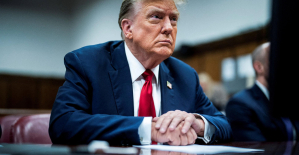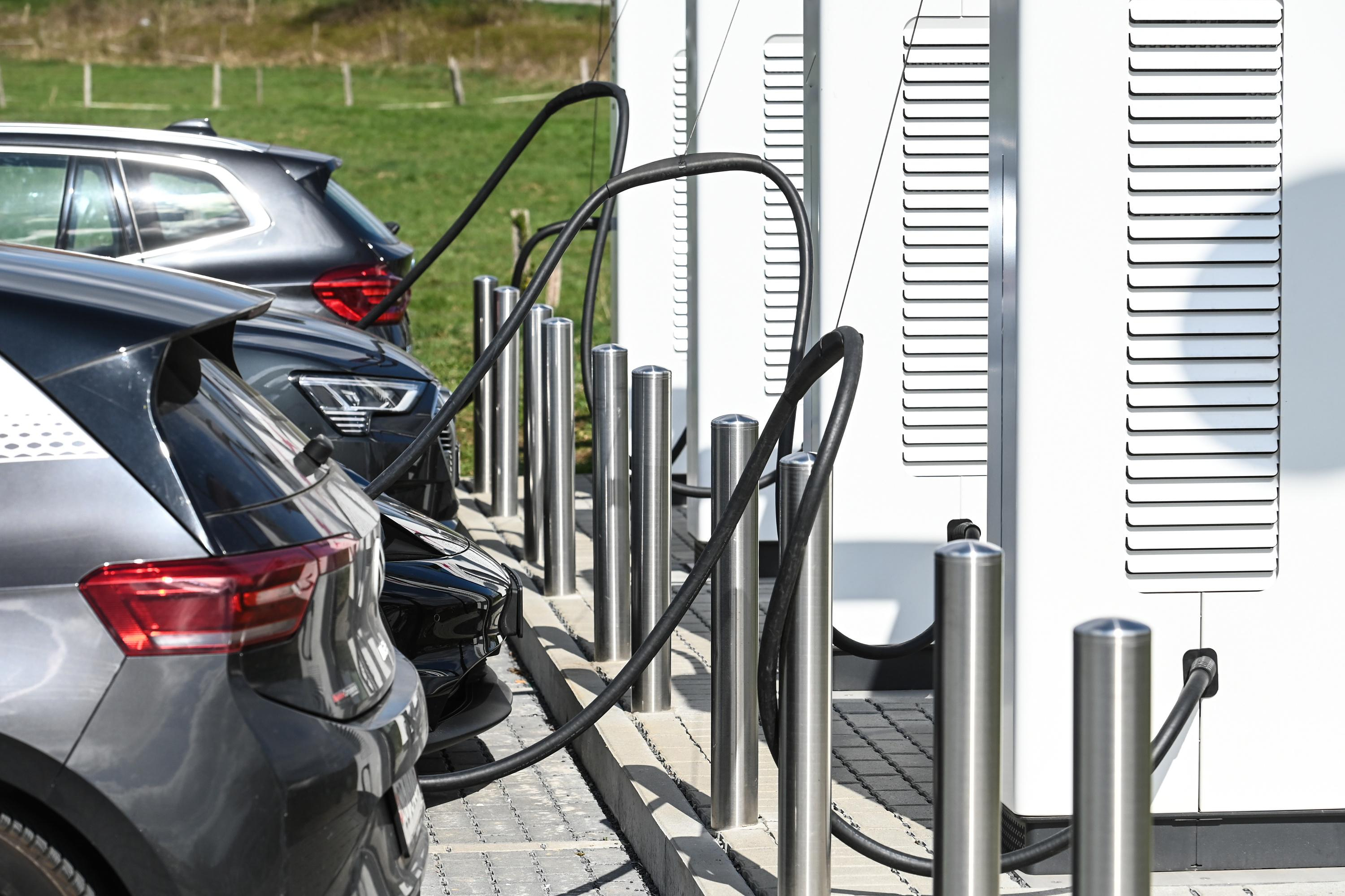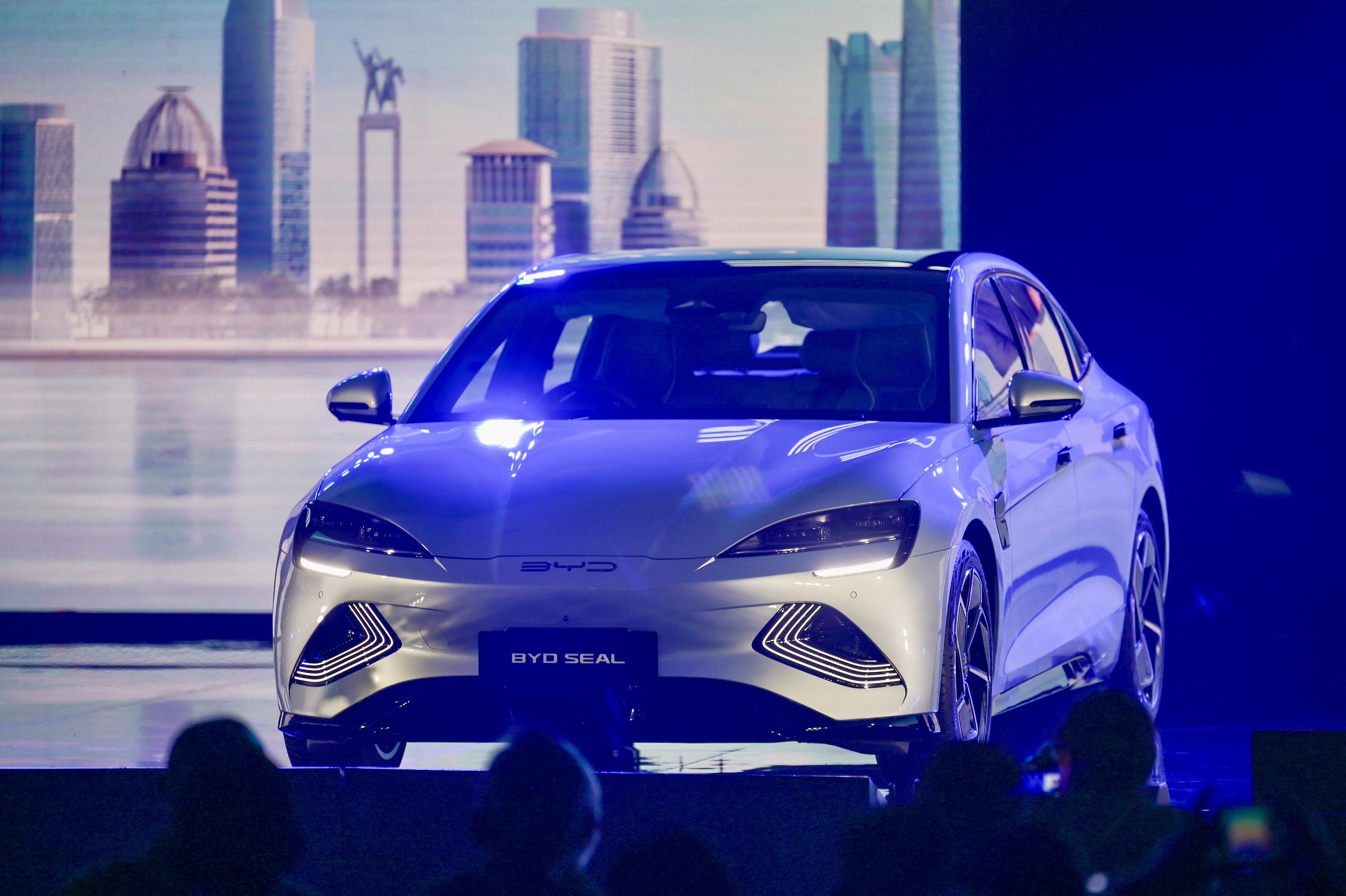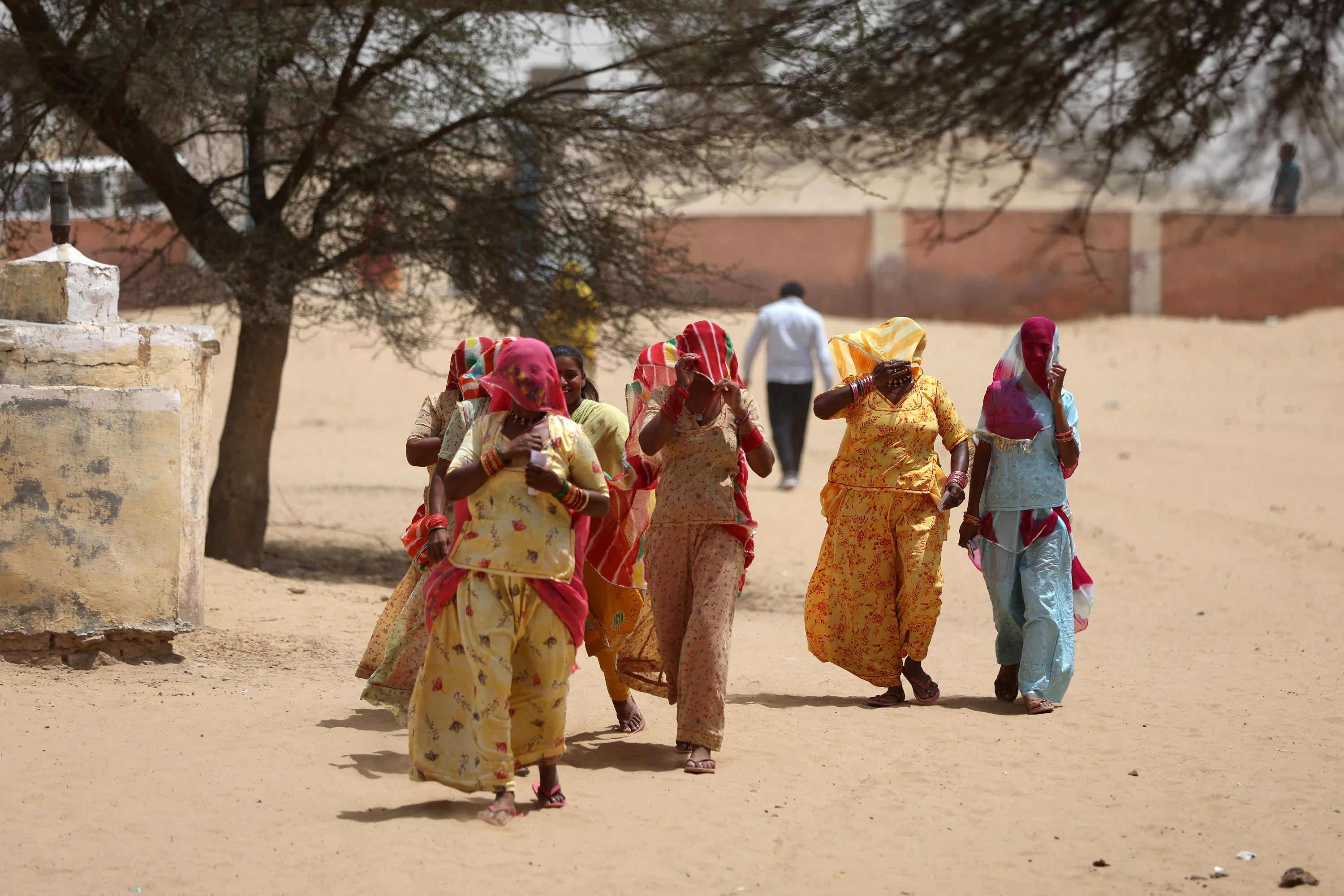A port in Portugal, Sines. A train route to Madrid. A gas pipeline in Kazakhstan. A development in Malaysia. An art exhibition in Dunhuang, in western China. All are integrated projects in the New Silk road, the ambitious chinese network infrastructure spread over the five continents, which can cost up to a billion dollars. A strategic plan for ramifications of geo-political and economic, was criticized by some as an instrument to dominate the world and praised by others as a Marshall plan for the TWENTY-first century that will help to develop regions forgotten. And to which China assigns importance; so much, that since last year has been included in the Constitution of the Communist Party.
In the beginning, when the chinese president Xi Jinping presented the idea at two summits in Astana (Kazakhstan) and Jakarta (Indonesia) in 2013, the proposal is in accordance with the neighboring countries, and its purpose was mainly the construction of infrastructures. But it has been expanding geographically and sectorally, to the extent that there has been a growing assertiveness of China in the outside. Currently, according to Beijing, are attached to more than one hundred countries around the world. And covers almost any area: it has commercial components, financial, security and cultural.
The geographical interest principal remains Asia. But “according to the official communication in china, all the countries and continents may be included, from the Arctic to Latin America”, explains Alice Ekman, a researcher on China at the French Institute of International Relations (IFRI). And “no longer just includes roads, railway routes, ports, airports and transport infrastructure. It also includes norms and standards, customs, courts, e-commerce... Basically, it is a label that you can paste in a whole range of projects”.
Rejected in its beginning by some as a plan impossible, the New Silk road, or “the Initiative of the gaza Strip and the Path” (“yi dai yi lu” in mandarin, BRI, for its acronym in English) has changed realities on the ground and is going to continue for decades. Through one of the flagship projects, the Economic Corridor China-Pakistan, will have access from your west through port pakistan Gwadar sea. In Djibouti, in the horn of Africa, has established its first military base.
CONNECTIONS IN EUROPE
Source: MERICS (Mercator Institute for Chinese studies). N. CATALAN (THE COUNTRY)
For China, the benefits of the plan are clear: expand routes to the west allows it to develop its western regions, more impoverished; it stimulates their industrial sectors at a time when their economy enters a stage of slower growth; open markets for their products; makes it easier for other countries to adopt their technology standards, for example in telephony 5G; and, in general, expands its presence and influence internationally.
The trade war with the united States
The plan has acquired a strategic importance even greater for Beijing with its trade war with the united States. If they continue to be tensions, you will need to diversify their exports and imports. “Beijing will resort to the canals built along the Route, particularly in agriculture and energy. In the margins, some additional production in china can be transferred to southeast asia,” noted by the consulting firm Eurasia Group this week in a note.
For the beneficiary countries, the benefits are also obvious. Asia will need about $ 1.7 trillion dollars (1.5 trillion euros) in investment in infrastructure up to 2030 to maintain its growth, according to the Asian Development Bank. And the investments of China come without questions about human rights or the nature of the government in power.
PROJECTS FUNDED BY CHINA IN THE WORLD
Source: NYT. A. ALONSO (THE COUNTRY)
up Until now, China claims to have disbursed 53,000 million euros; the Institute Mercator of Chinese Studies (MERICS) calculated that figure of 22 000 million in their database about the initiative. These amounts will continue to increase. The number of projects exceeds by far the thousand, and although Beijing has restricted the flow of capital to the outer face of its economic slowdown, the proposals with the label BRI continue to receive a generous funding. And some countries, especially those that are very difficult access to international markets, have accepted with enthusiasm the checkbook china.
What has generated criticism of some countries. By the mouth of his secretary of State, Mike Pompeo, and his deputy, Mike Pence, united States -immersed in his trade war with the asian power - has accused Beijing of carrying out a foreign policy of “debt trap”.
A debt that -according to the accusers - can be used in order to avoid criticisms on human rights in China, or to obtain favorable decisions, for example about appointments to international positions, or about territorial disputes, including in the South China sea. Beijing is the creditor of more than 50% of the debt of eight countries included in the BRI: Kyrgyzstan, Laos, Maldives, Mongolia, Montenegro, Pakistan, Tajikistan, and Djibouti.
Number of countries in Western Europe -including Spain - and Japan also maintained their reservations on the BRI, although willing to collaborate in specific projects. The prime minister of japan, Shinzo Abe, signed last month a memorandum of understanding to collaborate in third markets, a document similar to that which has subscribed to Spain this week. But these countries insist that, although the plan has a huge potential, China has to show a transparency in the contracts and credits that has been elusive so far.
“you have to meet the international standards. If followed, then there is potential for cooperation”, Celtabet pointed out last month, a Government official in japan during the visit of Abe to Beijing.
In Brussels and Tokyo, in Berlin, Paris, and Madrid highlighted the need to demonstrate that these projects do not harm the environment, are viable, beneficial to its recipients, and the recipient country can afford its.
These capital have refused to sign, despite the suggestions of chinese, memoranda of understanding, general support to the BRI. “The terms of these memoranda are often very general, vague in some cases, and include expressions chinese official that Beijing wants to promote but whose meaning is not yet clear, such as ‘community of shared destiny’”, explains Ekman.
Sri Lanka, a landmark case
The case of Sri Lanka is emblematic of these criticisms. This country has received credits chinese value of about 9,000 million euros, making it the third largest recipient of funds of the BRI, just behind Pakistan and Russia. Its strong debt -not only with Beijing - has led him to yield to a chinese company the use of its port of Hambantota and has been placed in a situation of great weakness to his Government.
The weight of the debt and huge projects has led to turn back, in some cases, countries. The new prime minister, malaysian, Mahatir Mohamed, announced shortly after his arrival to power, the suspension of a train line, the Railway Line of the East Coast, and a series of pipelines. During the election campaign that brought him to power this summer, and before the bloated debt of your country, the new head of Government in Pakistan, Imran Khan, promised to review the accounts of the Economic Corridor, which China has promised to invest around 40,000 million euros.
In other cases, the complaints come from the lack of results. The line Madrid-Yiwu is still not throwing benefits in your journey back to the coastal city of china. In 2016, the Philippines dismissed the ruling in your favor of an international court on its territorial dispute with Beijing in the South China sea and its then-new president, Rodrigo Duterte, announced a turn towards the great asian power; in exchange, he received 14 memoranda with promises of hefty investment. But two years later, has barely materialized any.
China replica that their projects generate employment in the countries and in favor of the development. And that their claims are not the cause of the debt problems of countries in trouble. “China has come later. It is not the main creditor country”, held in September, Ning Jizhe, vice-president of the National Commission of Reform and Development, the main body of economic policy in Beijing.
A change of march
But it has also accepted that, especially in the early years, when everyone-companies, provinces and the central Government - were launched in a hurry to put in place the BRI - were able to commit mistakes due to ignorance or precipitation.
The own Xi Jinping, in a series of events to commemorate the fifth centenary of the initiative, has urged to change gear and not much sign projects sign, but to “prioritize the needs of the other partners and implement projects that benefit local residents.” The association with other partners that provide reliability -Japan or european countries such as Spain - seems to be part of that change of strategy.
Xi has also rejected other accusations against a plan that bears his personal stamp. The BRI does not have, guarantee, or purposes geostrategic or military, as has been denounced by some critics, nor has as an object to achieve the hegemony of China. “It is not a club of China”, underlined in August.
And, while it is true that a number of projects have been problematic, the consulting firm RWR Advisory Group, in Washington, estimated this proportion at only 14%, a figure relatively small given the size of the plan.
Even in cases in which host Governments have protested -Mahatir came to speak of a “new colonialism” - rather than a cancellation of the absolute projects controversial, has sought a renegotiation. In the case of malaysian, the train line that has been paused is of interest to the two countries; the pipelines, apparently, are only suspended while Kuala Lumpur resolves its “fiscal problems internal”. The prime minister has insisted on the importance of chinese investment for his country.
In the case of Pakistan, which seeks to renegotiate its debt, prime minister Khan agreed, on a visit to Beijing this month, the creation of a working group on “socio-economic development”. It also signed a joint communiqué in which the two Governments to “reject the growing negative propaganda” against the Broker.
In other countries, the future of the route is still subject to uncertainties. Thailand and Indonesia have provided for elections that may alter the attitude of their respective Governments. In the Philippines, hangs a question mark over the health of Duterte.
Although on the table, there are no great alternatives to meet the infrastructure needs of asia. The BAD can not compete against the coffers of china. The plan japanese aid to infrastructure, launched in 2015, and endowed with almost 100,000 million euros for five years, is much more modest in geographical scope and in funds, to the chinese. Europe has just proposed his own program very recently, and to start in 2021. The united states has announced this year a mere $ 113 million (about 100 million euros) in new investments in the Indo-Pacific region.
In contrast, China maintains its strong commitment to the BRI. And the inclusion in the constitution of the Communist Party, has made it clear that the initiative will continue for decades.
The next year will hold its second Summit of the Silk road. If to the first, in 2017, was attended by delegations from 110 countries and 29 heads of State or of Government, Beijing will not settle for less. Will be a key event to determine the evolution of this project, which began as a mere proposal of infrastructure and has evolved to a giant strategic plan.

 Germany: the trial of an AfD leader, accused of chanting a Nazi slogan, resumes this Tuesday
Germany: the trial of an AfD leader, accused of chanting a Nazi slogan, resumes this Tuesday New York: at Columbia University, the anti-Semitic drift of pro-Palestinian demonstrations
New York: at Columbia University, the anti-Semitic drift of pro-Palestinian demonstrations What is Akila, the mission in which the Charles de Gaulle is participating under NATO command?
What is Akila, the mission in which the Charles de Gaulle is participating under NATO command? Lawyer, banker, teacher: who are the 12 members of the jury in Donald Trump's trial?
Lawyer, banker, teacher: who are the 12 members of the jury in Donald Trump's trial? What High Blood Pressure Does to Your Body (And Why It Should Be Treated)
What High Blood Pressure Does to Your Body (And Why It Should Be Treated) Vaccination in France has progressed in 2023, rejoices Public Health France
Vaccination in France has progressed in 2023, rejoices Public Health France Food additives suspected of promoting cardiovascular diseases
Food additives suspected of promoting cardiovascular diseases “Even morphine doesn’t work”: Léane, 17, victim of the adverse effects of an antibiotic
“Even morphine doesn’t work”: Léane, 17, victim of the adverse effects of an antibiotic Orthodox bishop stabbed in Sydney: Elon Musk opposes Australian injunction to remove videos on X
Orthodox bishop stabbed in Sydney: Elon Musk opposes Australian injunction to remove videos on X One in three facial sunscreens does not protect enough, warns L'Ufc-Que Choisir
One in three facial sunscreens does not protect enough, warns L'Ufc-Que Choisir What will become of the 81 employees of Systovi, a French manufacturer of solar panels victim of “Chinese dumping”?
What will become of the 81 employees of Systovi, a French manufacturer of solar panels victim of “Chinese dumping”? “I could lose up to 5,000 euros per month”: influencers are alarmed by a possible ban on TikTok in the United States
“I could lose up to 5,000 euros per month”: influencers are alarmed by a possible ban on TikTok in the United States Dance, Audrey Hepburn’s secret dream
Dance, Audrey Hepburn’s secret dream The series adaptation of One Hundred Years of Solitude promises to be faithful to the novel by Gabriel Garcia Marquez
The series adaptation of One Hundred Years of Solitude promises to be faithful to the novel by Gabriel Garcia Marquez Racism in France: comedian Ahmed Sylla apologizes for “having minimized this problem”
Racism in France: comedian Ahmed Sylla apologizes for “having minimized this problem” Mohammad Rasoulof and Michel Hazanavicius in competition at the Cannes Film Festival
Mohammad Rasoulof and Michel Hazanavicius in competition at the Cannes Film Festival Skoda Kodiaq 2024: a 'beast' plug-in hybrid SUV
Skoda Kodiaq 2024: a 'beast' plug-in hybrid SUV Tesla launches a new Model Y with 600 km of autonomy at a "more accessible price"
Tesla launches a new Model Y with 600 km of autonomy at a "more accessible price" The 10 best-selling cars in March 2024 in Spain: sales fall due to Easter
The 10 best-selling cars in March 2024 in Spain: sales fall due to Easter A private jet company buys more than 100 flying cars
A private jet company buys more than 100 flying cars This is how housing prices have changed in Spain in the last decade
This is how housing prices have changed in Spain in the last decade The home mortgage firm drops 10% in January and interest soars to 3.46%
The home mortgage firm drops 10% in January and interest soars to 3.46% The jewel of the Rocío de Nagüeles urbanization: a dream villa in Marbella
The jewel of the Rocío de Nagüeles urbanization: a dream villa in Marbella Rental prices grow by 7.3% in February: where does it go up and where does it go down?
Rental prices grow by 7.3% in February: where does it go up and where does it go down? Europeans: “All those who claim that we don’t need Europe are liars”, criticizes Bayrou
Europeans: “All those who claim that we don’t need Europe are liars”, criticizes Bayrou With the promise of a “real burst of authority”, Gabriel Attal provokes the ire of the opposition
With the promise of a “real burst of authority”, Gabriel Attal provokes the ire of the opposition Europeans: the schedule of debates to follow between now and June 9
Europeans: the schedule of debates to follow between now and June 9 Europeans: “In France, there is a left and there is a right,” assures Bellamy
Europeans: “In France, there is a left and there is a right,” assures Bellamy These French cities that will boycott the World Cup in Qatar
These French cities that will boycott the World Cup in Qatar Serie A: Bologna surprises AS Rome in the race for the C1
Serie A: Bologna surprises AS Rome in the race for the C1 Serie A: Marcus Thuram king of Italy, end of the debate for the position of number 9 with the Blues?
Serie A: Marcus Thuram king of Italy, end of the debate for the position of number 9 with the Blues? Milan AC-Inter Milan: Thuram and Pavard impeccable, Hernandez helpless… The tops and flops of the derby
Milan AC-Inter Milan: Thuram and Pavard impeccable, Hernandez helpless… The tops and flops of the derby Ligue 2: Auxerre leader, Bordeaux in crisis, play-offs... 5 questions about an exciting end of the season
Ligue 2: Auxerre leader, Bordeaux in crisis, play-offs... 5 questions about an exciting end of the season


















